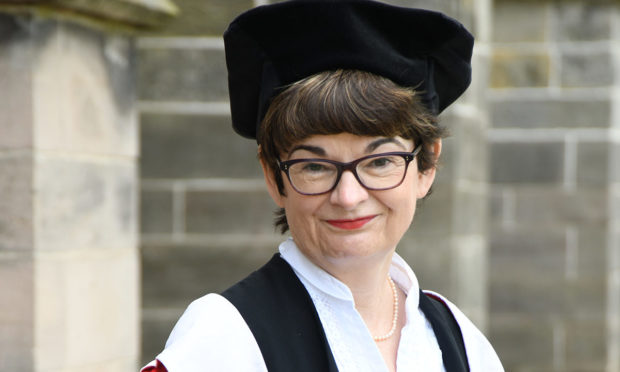St Andrews University has moved a step closer to being able to award full medical degrees for the first time in 50 years.
A Scottish Parliament committee has endorsed proposals to allow the ancient institution to confer degrees in both medicine and dentistry.
It has been banned from doing so since 1966 following a century-long battle to create a separate university in Dundee.
Scotland’s oldest university instead awards medics a degree in medical science before sending them to training centres to study the clinical part of their course.
It is the only ancient university in the country not to award medical and dental degrees.
A bill introduced last year could change the law and allow students to complete their studies at St Andrews.
If passed, the University of St Andrews (Degrees in Medicine and Dentistry Bill) would enable the university to award a degree to Scottish Graduate Entry Medicine (ScotGEM) students graduating next year.
ScotGEM is Scotland’s first graduate entry medical degree and is aimed at graduates interested in a career in general practice.
It is run jointly with Dundee University and has a focus on rural medicine and healthcare improvements.
The move would also potentially enable St Andrews to award degrees in medicine or dentistry in its own right.
However, this would need to be approved by the General Medical Council (GMC).
The Scottish Parliament’s health and sport committee has now said it supports the bill.
Committee convener Lewis Macdonald said: “St Andrews University has been educating Scotland’s students for more than 600 years.
“However, for the last 50 years they have been prevented from providing degrees in medicine or dentistry.
“The committee supports the general principles of the bill, which would see this prohibition lifted and allow ScotGEM students to receive joint degrees from St Andrews and Dundee universities.
“We do acknowledge though concerns that St Andrews potentially opening a new medical school could affect progress in widening access to medicine and this should be taken into account in any future proposals.”
Until the 1960s University College Dundee was part of St Andrews University and medical students had the choice of completing the first half of their studies at either location.
In 1966 however, St Andrews and Dundee became separate universities and the clinical part of the medical school was based in Dundee.
Because St Andrews had no clinical school or teaching hospital, it lost its right to award the degrees.
Health secretary Jeane Freeman said removing the legislation would create a fairer higher education sector in Scotland.










